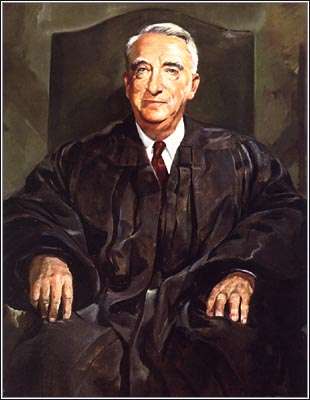U.S. labor law provides that, if the National Labor Relations Board finds that an employer has violated labor law rules, the employer can be required to announce that finding to employees. And in some situations (apparently quite rarely), the NLRB has the power to order that the employer’s president “personally read the NLRB’s remedial notice to an assemblage of the company’s employees.”
In 1983, then-Judge Ginsburg dissented, in a passage that (to my surprise) I hadn’t seen until a few days ago; I thought it would pass it along:
The Board’s order specifies that the Company’s “owner and president, Rizzuto, … shall … read the [NLRB’s notice ordering the employer to cease and desist from unfair labor practices] to current employees assembled for that purpose….” …. Here, the president’s personal involvement was … conspicuous. His voice behind the Board’s order might most authoritatively indicate to employees that Conair will comply with the directive.
Nonetheless, a reading order “directed at a specified individual” is a “startling innovation.” Such an order would occasion no surprise in a system in which those who offend against state regulation must confess and repent as a means of self-correction, or to educate others. But it is foreign to our system to force named individuals to speak prescribed words to attain rehabilitation or to enlighten an assembled audience. The Board, I believe, has not thoughtfully considered this point.
A forced, public “confession of sins,” even by an owner-president who has acted outrageously, is a humiliation this court once termed “incompatible with the democratic principles of the dignity of man.” It has a punitive, vindictive quality, and is the kind of personal performance command equity decrees have avoided. See Restatement (Second) of Contracts § 367 (1979); Lumley v. Gye, 2 El. & Bl. 216, 118 Eng.Rep. 749 (Q.B.1853); cf. Lumley v. Wagner, 1 DeG., M. & G. 604, 42 Eng.Rep. 687 (Ch.1852) (acknowledging lack of authority to grant specific performance of defendant’s concert singing obligations, court issued injunction preventing defendant from breaching covenant not to sing elsewhere).
Moreover, … a reading of the notice by the president may be less effective than a reading by another responsible officer. The former, humiliated and degraded by the personal specific performance order, may demonstrate “by inflections and facial expressions, his disagreement with the terms of the notice.” The latter, assigned the task but lacking the same personal involvement, may perform it with less distaste, more detachment, and thus with greater credibility. I would not single out the president here, or any other named individual, hand him lines, and make him sing.
Judge Ginsburg was in dissent there, and her views did not persuade Judge Wald—or the third panel member, then-Judge Scalia. But my quick research that more recent decisions have largely agreed with her, and provided that any such order must allow either for the notice to be read by some other corporate officer, or, if the company so chooses, by an agent of the NLRB. Consider, for instance, this 2016 D.C. Circuit opinion by Judge Stephen Williams:
For those familiar with 20th century history, such an order conjures up the system of “criticism-self-criticism” devised by Stalin and adopted by Mao. “Criticism” generally took the form of an attack on the target by his or her peers at a meeting with fellow workers, spouting claims fed them by powerful members of the Communist party (on pain of themselves being tagged enemies of the people), and then regurgitated by the target (“self-criticism”) in the hopes that full confession might avert dispatch to the gulag, torture or execution.
What is the subtext communicated by the sort of scene the Board would mandate? What is communicated to the assembled workers and the perpetrator himself? “You see before you one of your managers, who normally has a responsibility to make important choices as to your work. But who is he? Not merely is he a lawbreaker, but he is a pathetic creature who can be forced to spout lines some government officials have put in his mouth. He is not even a parrot, who can choose when to speak; he is a puppet who speaks on command words that he may well abominate. We have successfully turned him into a pathetic semblance of a human being.” Of course, one may say, here it is just that the mighty have fallen; he was a lawbreaker. But fallen so low? Fallen to a condition that denies his autonomy? Cf. United States v. Gementera (9th Cir. 2004) (Hawkins, J., dissenting) (saying that the sole purpose of a sentence requiring a convicted mail thief to stand outside a post office for eight hours wearing a sandwich board stating, “I stole mail. This is my punishment” was “to turn him into a modern day Hester Prynne”)….
Indeed, some judges express reservations about even the NLRB-reading option:
The General Counsel and Union argue that the option for a Board agent to conduct the reading alleviates any First Amendment problems. But like the Fifth Circuit, this option “does not assuage our concerns.” The notice is phrased as if Sysco’s employees are speaking the words (e.g., “We will not threaten you that a strike is inevitable …”). It requires named individuals—Shaeffer and Barnes, if still employed by Sysco—to stand at attention as human demonstratives in the employer’s confession of sins. And it runs headlong into the Supreme Court’s recognition that compelled speech violations extend to situations “where the complaining speaker’s own message was affected by the speech it was forced to accommodate.” Rumsfeld v. Forum for Acad. & Institutional Rights, Inc. (2006).
Now I don’t want to overstate the influence of Ginsburg’s argument here: Of course, the criminal justice, rightly or wrongly, routinely lowers defendants’ sentences if they “accept responsibility” by publicly acknowledging that they were wrong. That’s not strictly speaking a court-ordered “confession of sins,” but it’s very nearly that (since a defendant who declines to confess his sins that way will likely be given a materially longer sentence than one who does).
Also, as the citation to the Gementera dissent shows, some courts (such as the Gementera majority) allow even court-ordered public self-shaming; and of course the rules may be different when the government is acting as employer or as K-12 educator than when it’s acting as sovereign. As with many forceful articulations of important principles, there are limits to how far the legal system (or even Justice Ginsburg herself) would follow that articulation. Still, the Ginsburg passage struck me as interesting and surprisingly little-known, so I thought I’d pass it along.
from Latest – Reason.com https://ift.tt/3m4nNhl
via IFTTT



